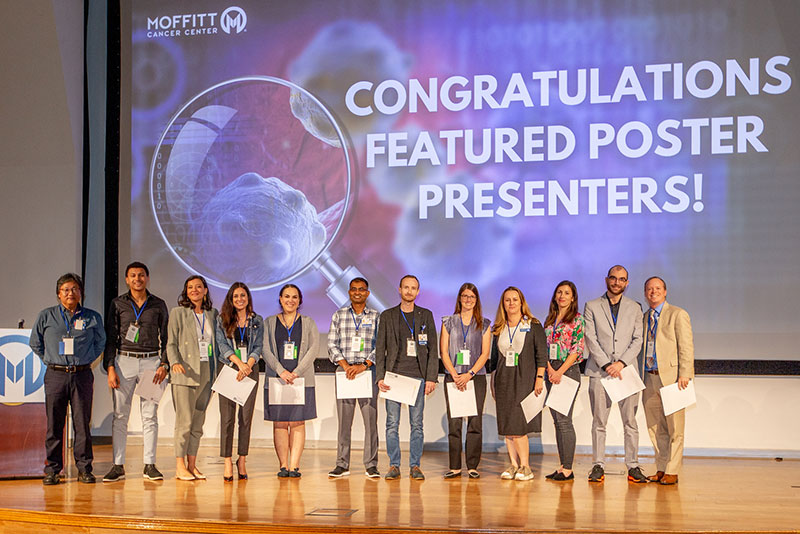2023 Moffitt Scientific Symposium Recap
The 2023 Moffitt Scientific Symposium was a resounding success, attracting a record-breaking attendance of 441 attendees. The event spanned two days, showcasing groundbreaking research in the fields of medicine and cancer.

On the first day, attendees eagerly gathered to witness the highly anticipated W. Jackson Pledger Researcher of the Year lecture, delivered by Dr. Anna Giuliano. Dr. Giuliano captivated the audience with her insightful presentation on “Eliminating HPV-related Cancers – Research to Impact Public Health”, shedding light on her pioneering work in cancer research. Following the lecture, a lively and well-attended reception provided an excellent opportunity for networking and engaging discussions.
The second day of the symposium witnessed an even larger turnout, with a notable increase in attendees compared to previous years. The day began with presentations from 15 featured poster presenters, each showcasing their innovative research projects. The posters covered a wide range of topics, demonstrating the diverse and cutting-edge research being conducted.
After the featured poster presentations, the day continued with two consecutive poster sessions and was followed by the 10 featured oral presenters who delivered compelling talks on their respective areas of expertise. These presentations were met with great enthusiasm from the audience, fostering stimulating discussions and knowledge exchange.
We are proud to announce the 2023 Moffitt Scientific Symposium's winner of the People's Choice Best Poster Award as Dr. Imene Hamaidi, a postdoc in Dr. Sungjune Kim's lab. Congratulations Dr. Hamaidi!
Overall, the 2023 Moffitt Scientific Symposium proved to be a remarkable event, bringing together leading researchers, scientists, and medical professionals from around the institution. The symposium fostered an atmosphere of collaboration and knowledge-sharing, inspiring attendees to push the boundaries of cancer research and make strides toward improved patient care and treatment outcomes
